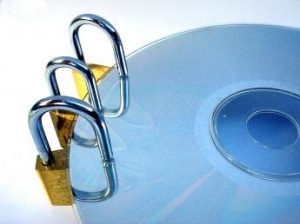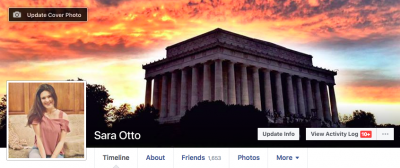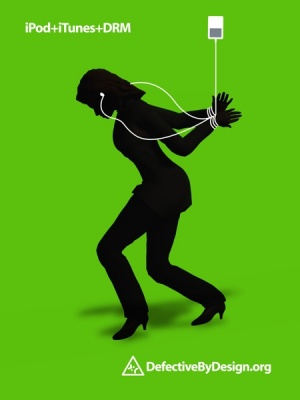Digital Rights Management
Digital Rights Management (DRM) mainly refers to the guidelines, methods, and tools that outline the appropriate usage of digital content. It plays a major part in the flow of contents. Some of its roles of the DRM system are to organize the raw content for convenient tracking and dispersion, to protect digital content so the transmission cannot be tampered with, to distribute offline content to CDs and DVDs, and to deliver content on-demand over peer-to-peer networks. Therefore, a system of rules and regulations are needed to make sure that the DRM is practiced fairly. Many producers of electronic media use this process in an attempt to prevent Digital Piracy of their products. Examples of DRM include country coding on DVDs, authentication keys for software or video games, and cellphones being locked to one service provider. This model is in contrast to the Open Source model.
Contents
History
One of the first famous uses of DRM was brought into public attention after iTunes was launched and then began to dominate the digital music market. iTunes at the time protected their songs (as part of their deals with record labels) with a type of DRM known as FairPlay. Users could only load their protected music that they purchased from the iTunes store onto iPods or other 'approved' devices. The FairPlay DRM also placed heavy restrictions on how the user could use and play the music that they had purchased, including limiting the number of computers that were authorized to play the song and the number of times a playlist containing a protected file could be copied to a CD[1].
The Digital Millenium Copyright Act was passed to extend intellectual property law to criminalize circumvention of DRM [2]. DRM has since been included in digital movies, TV, e-books, music, video games and documents in an attempt to maintain controlled, paid access to them. Some such materials have been released DRM-free as a show of support to consumers and solidarity to the opponents of DRM.
Functional Architecture
The DRM systems can be modeled in three areas[3]:
- IP Asset Creation and Capture Module - To manage the production of content materials so it can be easily traded, which involves declaring rights when content is first created by different digital media content producers.
- IP Asset Management Module - Repository functions to allow the retrieval of content in potential databases and metadata. Trading functions to allow appointment of licenses to producers who have exchanged concurrence for rights over content material, which includes payments to rights holders.
- IP Asset Usage Module - Management of content use after it has been traded, which includes supporting restrictions over traded content in certain desktop systems/software.
Implementation
DRM is most commonly implemented through restrictive licensing agreements, which controls access to certain materials, or encryption, which encodes the relevant material and requires a key to decode. [4]
Controversy
Corporations and producers claim that DRM is a useful tool in preventing piracy and ensuring legitimate use of artists' work, comparing it to locking a physical store. They are concerned with maintaining their business and the livelihood of themselves and the artists that they represent. Opponents of DRM claim that it prevents legitimate use of materials, such as making a backup copy of something you purchased or lending a video game to a friend. [5] Some opponents of DRM, most notably the Free Software Foundation, say that the term should be Digital Restrictions Management, as it hinders the rights of consumers. [6]
Ethical implications
Main Argument
The primary ethical question associated with DRM is whether those who circumvent it are defending the rights of end users, or attacking the property of producers.
The Electronic Frontier Foundation asserts that DRM is ethically flawed, as ".. in an effort to attract customers, these music services try to obscure the restrictions they impose on you with clever marketing."[7] It is also argued that laws and restrictions pertaining to DRM are fuzzy. It is often difficult to determine what specific actions, such as ripping a copy of a CD that you own to store on your iPod, are illegal. Such confusions lessen a law-abiding person's ability to detect when they've broken the law, and thus reduce feelings of moral obligation[4].
The main controversy with DRM is that consumers who pay for media have a defined concept of ownership over the physical item and expect complete and total control when ownership of an item is exchanged for money, but the DRM's intention is to protect the intangible content (i.e. music, film, dialogue). In the interests of maintaining profits and possibly a person's source of income, DRM is ethical in that it prevents the unlawful distribution of work to which the consumer does not own the rights.
Radiohead
More and more artists are warming up to the idea that their art, whether it be audio, video, or even source code (e.g. gaming) need not be protected by an ever-aging piece of legislation. For instance, the band Radiohead released their album In Rainbows in 2007 via web available at any cost the buyer wanted - including for free. Not only was their choice to have a variable cost for purchase revolutionary, but releasing content on a platform that was open to pirating proved that DRM may not be needed to ensure a high profit margin for sales.
Louie C.K.
Louie C.K. is a comedian who appears on Comedy Central. In 2011, he experimented with digital downloading by releasing a new comedy show, Live at the Beacon Theatre, directly for download from his personal website, LouisCK.net. The "non-copy-protected" download was priced at $5 and "cut out the distributor," Comedy Central. This allowed C.K. to "handle all transactions on his own site," and generate more of a profit as a result. C.K. hoped that the lower prices would allow more fans to view his comedy routines without paying more money to Comedy Central to see his shows. On his personal website, C.K. created a message aimed at people who might have wanted to "torrent" or illegally download his show for free in the hopes that educating fans about how illegal downloading affects the content producer would stop people from pirating his files. He wrote,
To those who might wish to "torrent" these shows:
Look, I don't really get the whole "torrent" thing. I don't know enough about it to judge either way. But I'd just like you to consider this: I made these files extremely easy to use against well-informed advice. I was told that it would be easier to torrent the way I made it, but I chose to do it this way anyway, because I want it to be easy for people to watch and enjoy this video in any way they want without "corporate" restrictions.
Please bear in mind that I am not a company or a corporation. I'm just some guy. I paid for the production and posting of this video with my own money. I would like to be able to post more material to the fans in this way, which makes it cheaper for the buyer and more pleasant for me. So, please help me keep this being a good idea. I can't stop you from torrenting; all I can do is politely ask you to pay your five little dollars, enjoy the show, and let other people find it in the same way.
Sincerely,
Louis C.K.
C.K. garnered "$1.1 million in gross profits" in twelve days, as opposed to only $250,000 in production costs.
Pretty Lights
The electronic music DJ, Pretty Lights, offers his music for free on his website. Most of Pretty Lights' music (except a few unreleased songs that are available to listen on Youtube) is available for free downloading, without any file-protection preventing copying. When one downloads this music, there is a prompt that asks for a suggested--but not required--donation. [8] Additionally, there is a Pretty Lights record label that offers other artists' music for free, with a suggested donation. The fact that his music is offered for free, without DRM, casts doubt on the notion that DRM is required to ensure that artists make a decent living.
Fox, Universal, and Sony Caught Pirating
After wondering whether or not organizations supporting initiatives such as the Protect IP Act and Stop Online Piracy Act as well as major members of the RIAA and MPAA held themselves to the same standards they intend to force upon others Torrent Freak analyzed the BitTorrent data associated with IP addresses from many organizations and discovered very disturbing evidence.
According to their findings, numerous IP addresses from Fox, Sony, Universal, and Google, among many others, have recently illegally downloaded files ranging from movies and television shows to illegal copies of Microsoft Windows 7. Torrent Freak's research is no way intended to bring legal justice to these organizations, but merely to bring to light the flaws and hypocrisy surrounding digital media legislation.[9]
Creative Commons
Creative Commons is a global nonprofit organization that enables sharing and reuse of creativity and knowledge through the provision of free legal tools. CC's legal tools help those who want to encourage reuse of their works by offering them for use under generous, standardized terms, those who want to make creative uses of works, and those who want to benefit from this symbiosis. Although Creative Commons is best known for licenses, our work extends beyond just providing copyright licenses. CC offers a number of other legal and technical tools that also facilitate sharing and discovery of creative works. [10] These efforts are a step in the correct direction on how to solve issues stemming from DRM.
See Also
References
- ↑ Wikipedia - FairPlay
- ↑ Wikipedia - Digital Millennium Copyright Act
- ↑ "Digital Rights Management (DRM) Architectures." D-Lib Magazine. Web. 16 Dec. 2011. <http://www.dlib.org/dlib/june01/iannella/06iannella.html>.
- ↑ 4.0 4.1 Wikipedia - Digital Rights Management
- ↑ http://www.cbc.ca/news/technology/story/2009/08/06/tech-digital-locks-drm-tpm-rights-management-protection-measures-copyright-copy-protection.html
- ↑ http://www.fsf.org/campaigns/drm.html
- ↑ https://www.eff.org/pages/customer-always-wrong-users-guide-drm-online-music
- ↑ http://www.prettylightsmusic.com/#/home
- ↑ https://torrentfreak.com/busted-bittorrent-pirates-at-sony-universal-and-fox-111213/
- ↑ Creative Commons FAQ


